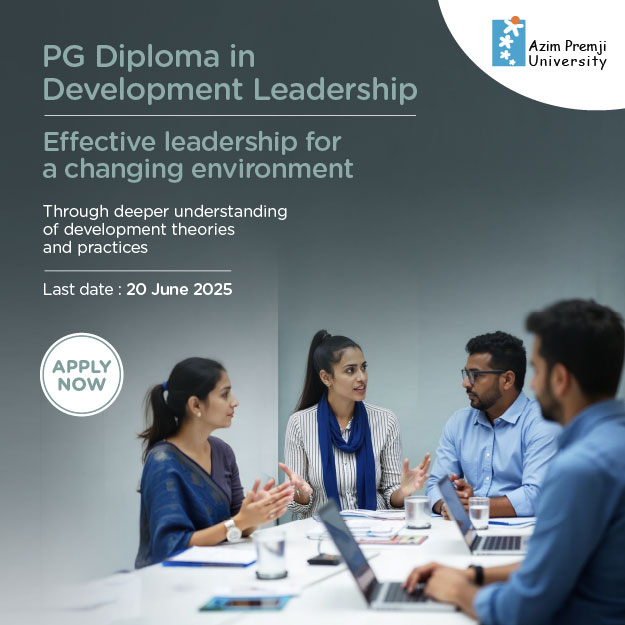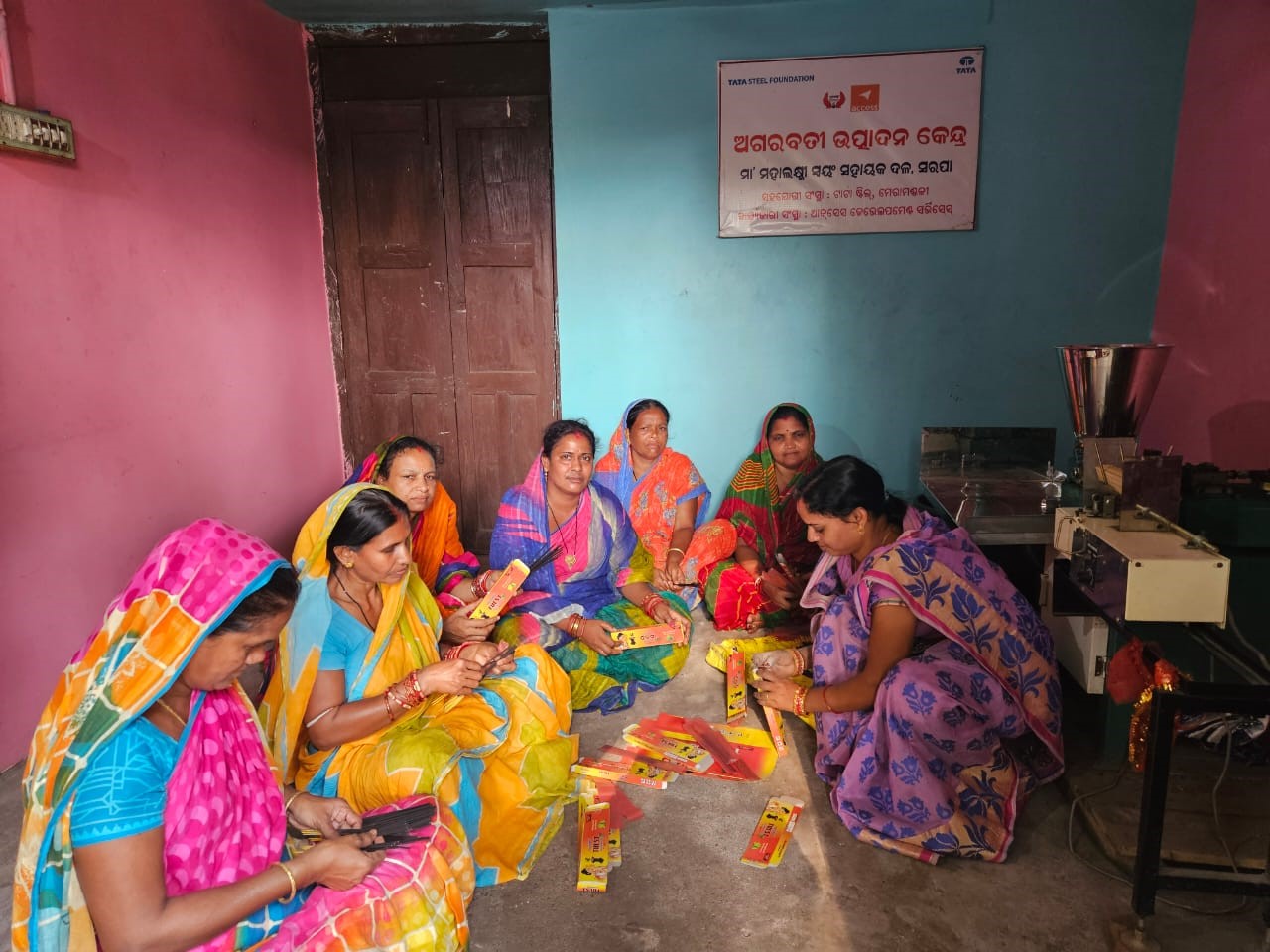Subscribe our Weekly Newsletter
RFP - Coordination Agency for HP Futures Project in Himachal Pradesh

Organization: UNESCO
Apply By: 27 Jun 2025
About the Organization
UNESCO, the United Nations Educational, Scientific and Cultural Organization, is a specialized agency dedicated to strengthening our shared humanity through the promotion of education, science, culture, and communication.
We set standards, produce tools and develop knowledge to create solutions to some of the greatest challenges of our time, and foster a world of greater equality and peace.
Protecting biodiversity, responding to artificial intelligence, advancing quality education, safeguarding heritage, and ensuring access to reliable information are some examples of the work that UNESCO does with its 194 Member States across the globe.
About the Proposal
This RFP seeks a contractor to serve as the coordination agency, supporting coordination, technical implementation, stakeholder engagement, logistical arrangements, and monitoring across the project’s three pillars: Competency-Based Education (CBE) for 21st-century skills, values education through sports, and greening education, for the implementation of the "HP FUTURES project in Himachal Pradesh, India".
Introduction:
In today’s rapidly changing digital and environmental landscape, learners must apply their knowledge and skills practically, adapting to complex real-life and professional situations (UNESCO, 2016). Traditional curricula, didactic teaching, and test-based assessments are inadequate in preparing learners to face the rapidly evolving world (UNESCO International Bureau of Education, 2024). Integrating greening education and 21st century skills through competencybased education (CBE) have become integral in the educational landscape to prepare learners to tackle real-world challenges, foster personal and professional growth, and equip them with the skills needed to succeed in a competitive and sustainable workforce.
Recognizing the need for such a transformation at the national level, India’s National Education Policy (NEP) 2020 and the National Curriculum Framework for School Education 2023 (NCF) aim to transform the Indian education system by integrating competency-based approaches in curriculum, pedagogy, and assessment. India’s educational reforms focus on shifting from rote learning to fostering genuine understanding and independent learning. These reforms emphasize embedding 21st century skills within existing subjects and learning experiences, creating a comprehensive and multidisciplinary education system that prepares students for future challenges. While Himachal Pradesh has made progress in integrating CBE in line with India’s NEP 2020 and NCF 2023, challenges remain in the capacity of teachers to effectively implement CBE methodologies and existing gaps between policy intentions and classroom practices.
Many educators struggle to effectively deliver CBE due to insufficient training and traditional teaching practices. Misalignment across pedagogy, assessment, and curriculum further hampers the integration of 21st century skills. A well-structured approach is needed to define these skills, establish clear learning outcomes, and integrate them into teaching methodologies. To ensure effective implementation of CBE for 21st century skills, teachers must be equipped with both pedagogical strategies and a deep understanding of foundation values such as inclusion, equity, and respect. Strengthening teacher capacity in these values transforms classrooms into dynamic, competency-driven learning spaces, where students develop both academic and social-emotional competencies through academic subjects and co-curricular activities, necessary for success in an interconnected world.
Additionally, as a mountainous state, Himachal Pradesh is highly susceptible to climate changeinduced disasters such as landslides, flash floods, and extreme weather conditions, which frequently disrupt schooling. Given that climate change is amongst the biggest challenges of the 21st century, ensuring climate-resilient schools and integrating environmental education into the curriculum is essential to prepare students and schools for climate-related challenges. This initiative fosters sustainability by helping education systems develop climate-resilient schools, integrate climate education into learning materials, and train teachers to deliver environmentfocused curricula. These interventions align directly with Himachal Pradesh’s efforts to enhance climate education and develop green schools to prepare students for environmental challenges. The main objectives of this initiative are to enhance climate resilience in schools and integrate climate education into the curriculum, preparing students for climate-related challenges. This involves developing green schools, training teachers, and fostering sustainable practices within the education system.
The HP FUTURES project in Himachal Pradesh aims to ensure quality education for students of Himachal Pradesh by enhancing the capacities of teacher and educators focusing on 21st century skills and greening education. This will be done by integrating competency-based approaches in teaching and learning practices by deepening their understanding of foundational values such as inclusion, equity, and respect, along with better alignment across policy, curriculum, training, and assessment frameworks. Additionally, incorporating environment education into school systems, curricula, and teaching methodologies equips students and schools with the knowledge and skills needed to address complex environmental challenges. By adopting a whole-school approach, these interventions will reinforce the education system, enhance learning quality across the state, and prepare students for a sustainable and future-ready workforce.
Outputs and Deliverables:
Under the Education Programme of the UNESCO South Asia Regional Office, and guided by the authority of the Director of the UNESCO South Asia Regional Office and directly supervised by the Chief of Education and Chief of Social and Human Sciences of the UNESCO South Asia Regional Office, the contractor shall provide logistical, administrative, and technical support for project execution, ensure alignment across stakeholders, and support monitoring, reporting, and communication functions. The Contractor will work with UNESCO’s Project Coordinator, consultants and experts to ensure the overall implementation of the HP- FUTURES project.
Scope of work:
The Contractor shall undertake all tasks to fully coordinate and implement the HP FUTURES project in Himachal Pradesh, India. The three outputs of the project are:
- Policies, curriculum, teacher training programs, and assessment on competency-based education for 21st Century skills evaluated to enhance teacher readiness for effective implementation in classrooms and beyond.
- Conduct teacher capacity building workshops (100 teachers + 100 school management + 100 CRC and BRCs) to strengthen understanding of values of inclusion, equity, and respect strengthened through sports
- Evaluations of policies, curriculum, teacher training programs, Eco-clubs, and assessments on greening education conducted to ensure a holistic integration of climate change education in Himachal Pradesh, with findings presented to guide future implementation.
The Contractor will facilitate the following activities-
- UNESCO will establish a Project Technical Review Group (PTRG) comprising a maximum of eight members, with expertise spanning the three key components of the HP FUTURES project. The Contractor will support and collaborate closely with the PTRG to ensure the project progresses in the right direction from a technical standpoint. This includes coordinating regular interactions—at a minimum, one meeting per quarter—which may be conducted in person or online, depending on feasibility and project needs. For in-person meetings, the Contractor will be responsible for facilitation and logistical arrangements, including venue, materials, and coordination support. The Contractor will also be required to submit proper minutes of each meeting to UNESCO within an agreed timeframe.
- Mapping of 124 PM Shri schools which are to be included in the project.
- Manage all the coordination and logistics related to the scoping mission, consultations, trainings and workshops under the three project outputs. This includes:
- Present key findings and develop a roadmap for teacher training module design and statewide teacher training rollout plan.
- To share key findings from the needs assessment and stakeholder consultations.
- Teacher training workshops and workshops with school management, BRCs and CRCs on Sport.
- Values in Every Classroom Toolkit (SViECT) and greening education, feedback and school visits to monitor progress.
- Workshops and consultations for curriculum review, coordinate interviews of teachers and school visits related to greening education.
- Quarterly reporting, monitoring and mapping of financial and programmatic updates in coordination with UNESCO and the state government.
- Develop and implement a visibility and communications strategy in coordination with UNESCO in line with UNESCO’s overall gender mainstreaming strategy. Facilitate systematic and creative documentation of writing and audio-visual outputs for the project.
- Liaise with local government, schools, DIETs, BRCs, CRCs, PM SHRI schools, national and international experts and other field-level partners.
- Undertake any other activities as mutually agreed upon with the Programme Specialist of Education, and the Programme Specialist of Social and Human Sciences at UNESCO Regional Office for South Asia.
Deliverables:
The contractor is responsible for submitting the following deliverables to UNESCO Regional Office for South Asia:
- A detailed work plan and staffing plan outlining timelines, roles, and responsibilities.
- Organize fortnightly meetings with UNESCO team and submit monthly progress reports summarizing key activities, achievements, challenges, and next steps.
- Documentation of logistical support, including event completion reports with participant details and a financial report with supporting documentation for all incurred expenses.
- Consolidated technical inputs and draft narrative reports for project monitoring and reporting.
- Audio-visual and social media related outputs as per the communication plan for the project.
- A comprehensive final completion report capturing overall project implementation, outcomes, and lessons learned including but not limited to:
- Training and Workshop Materials: Submit materials used for training sessions and workshops, including agendas, presentations, and participant feedback.
- Teacher Capacity Assessment Report: Submit a report based on interviews with teachers, outlining their existing capacities, knowledge in greening education, and identified training needs.
- Eco-club Status Report: Develop a report on the status of Eco-clubs in schools, including existing activities, opportunities for enhancement, and alignment with UNESCO’s Green School Quality Standard.
- Gender Analysis Report: Provide a report on gender perspectives integrated into project activities, including analysis and recommendations for gender mainstreaming.
- Case Studies and Success Stories: Document and submit case studies and success stories highlighting key achievements and lessons learned from the project.
- Resource Development: Create and submit educational resources developed during the project, such as toolkits, guides, and curriculum materials.
Eligibility
Mandatory requirements:
- The firm/entity must have a minimum turnover of INR 50 Lakh (USD 57,500) in the most recent financial year, with clean audit reports and a sound financial position.
- The firm/entity must have demonstrated expertise in competency-based education (CBE), teacher training, and greening education initiatives in India.
- The firm/entity must have 5 years of professional experience in coordinating multistakeholder partnerships and conducting consultations for education-related data collection.
- The proposed senior expert must have at least 5 years of professional experience in implementing education projects at the national and/or international level.
- The senior expert must hold a master’s degree in education, social sciences, or a related field.
- The proposed junior expert must have at least 3 years of professional experience in implementing education projects at the national and/or international level.
- The junior expert must hold a bachelor’s degree in education, social sciences, or a related field.
Desirable Requirements:
- The senior expert has experience managing education projects in Himachal Pradesh.
- The quality of previous work samples aligns with the tasks and requirements outlined in the Terms of Reference.
How to Apply
Your offer comprising a technical proposal and a financial proposal, in separate documents/electronic folders, should reach the following email address: procurement.NDL@unesco.org without any copy to any other e-mail addresses no later than 11:59 p.m. (India Standard Time – IST) on 27 June 2025. Offers addressed at any other e-mail accounts will be disqualified. Please indicate RFP reference: “922IND100/ NDL/HP FUTURES project” and closing date and time in your email heading.
For more information please check the Link
Join us for the 12th Edition of India CSR & ESG Summit 2025 | Register Now
Latest Online Store
Latest Grants
Latest News
© Renalysis Consultants Pvt Ltd

























.jpeg)
.jpg)
, Punjab Police and Ms Harkirat Kaur CEO Hartek Foundation.jpg)
